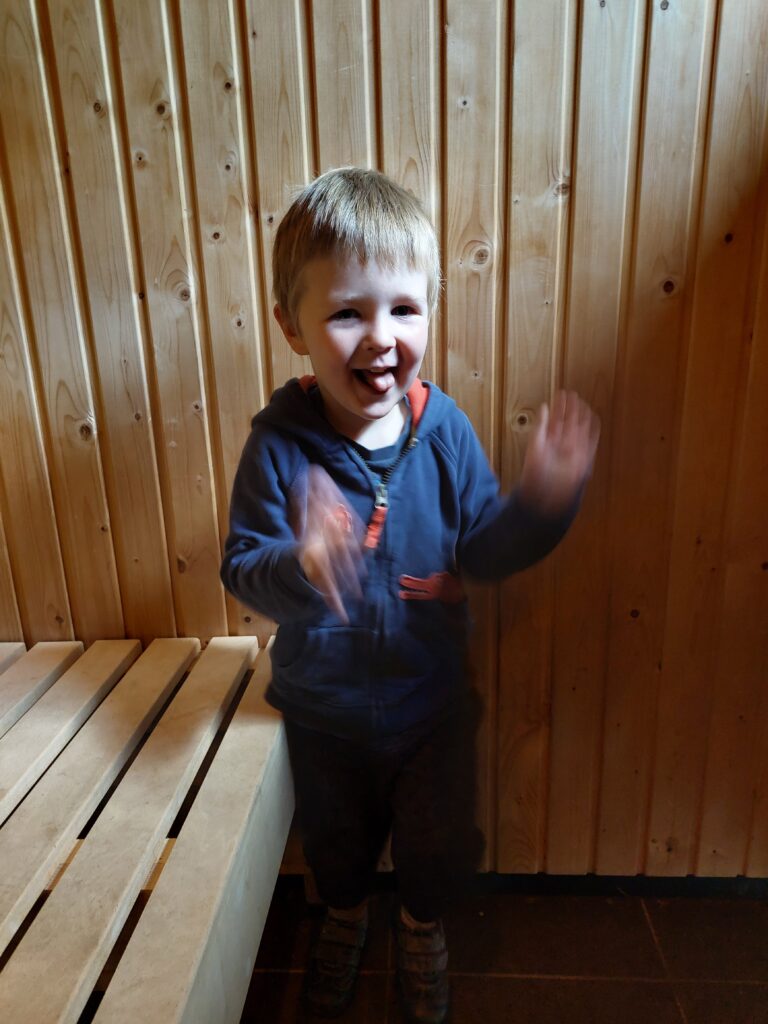Thinking about some of the ways my older son hasn’t yet grasped what is expected in social situations, I had an idea that might help him. And it might help me in exactly the same way. The idea is that people have two modes of being, two faces they wear: their inward face and their outward face.
When you’re outside, you put on your outward face – you look at passers-by, greet people you know, maybe make chit-chat with strangers and are generally open for social interaction. When you’re home and have your inward face on, you can be inside your head, say whatever you want, be quiet if you like and not have to make an effort to be polite.

The reason I thought this might help my son is that he and I have the same tendency to keep our inward faces on when we go outside. That’s why I sometimes fail to be an engaged member of the local community. I’m inside my head and don’t notice someone struggling with a pram on the stairs, for example. I’ve been embarrassed before about coming across as rude or uncaring, all because I wasn’t paying attention to my surroundings.
Cal is very good about putting his outward face on when he’s out and about. He almost seems to be looking out for ways to engage with people, whether helping an old lady or telling someone off for littering. I’d like to be more like that (at least the old lady bit – I have a phobia of youfs).
Practically speaking I think I could improve at this by using a trick I learned while learning to drive. Whenever I entered an area in my car, I would take in some clues about what kinds of things I needed to pay attention to. Residential street: children stepping on the road suddenly, cats running across the road, people backing out of their driveways. Or high street: buses pulling in and out, people dashing across the road.
It could be similarly helpful to say to myself: Going to the shops: people needing help with heavy bags, staff asking me questions, oldies wanting to chat to my children. At the office: people asking me to show them how to do something, water-cooler chit-chat, new joiners looking for the coffee cups. Maybe then I wouldn’t get startled out my reveries and scare off people who haven’t forgotten to put on their outward faces.
I started to listen to the new Serial podcast, Retrievals. It’s about a fertility clinic where one of the nurses has been stealing the pain medication used in egg retrieval procedures and replacing it with saline solution. As a result, lots of women had big needles stuck up their uteruses without pain relief. The interesting part is why it took a fairly long time to find out what was happening. In the meantime, the clinic dismissed the patients’ obvious agony, untypical recovery times and complaints.
I think the angle of the podcast is that it’s to do with sexism, and it seems like there must be an element of that. I’m interested to keep listening and find out if they maybe also discuss other factors. Perhaps there’s something about how men and women behave differently when in pain or making a complaint, for example, and whether it impacted the women that the procedure succeeding had such high emotional stakes attached to it. So far so good.

Be First to Comment